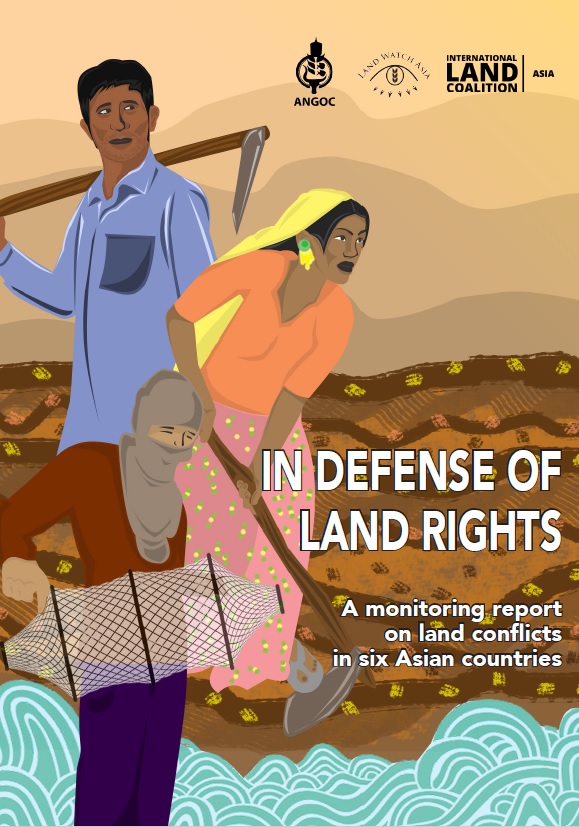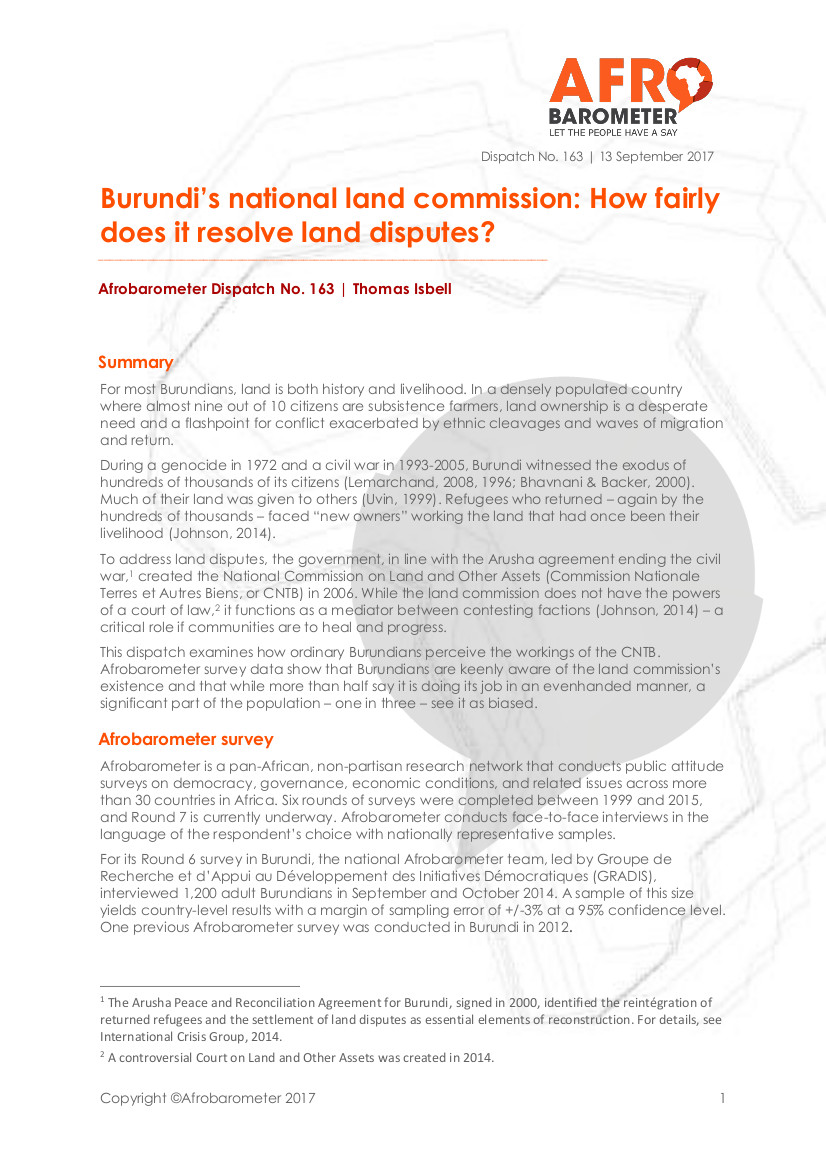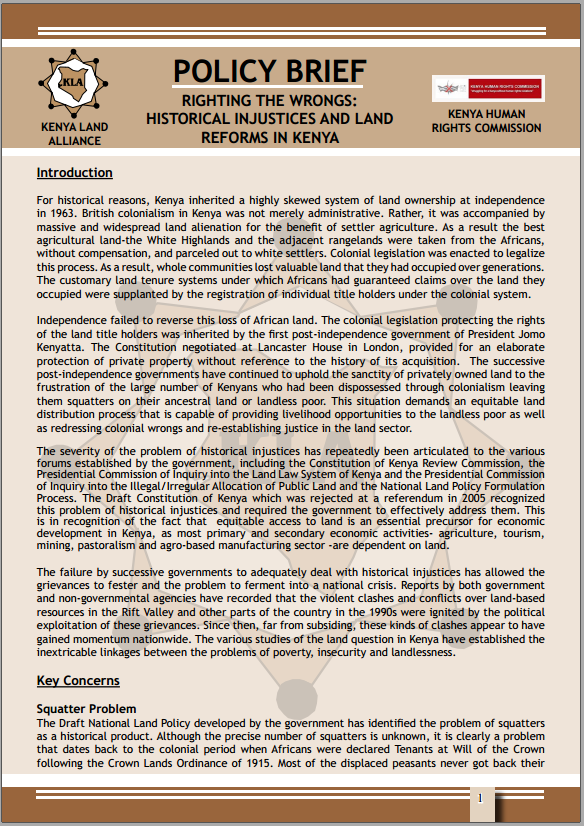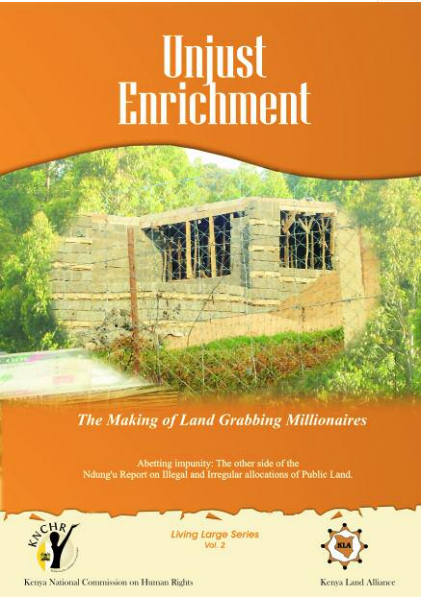Assessing the costs of tenure risks to agribusinesses - Report appendices
These appendices refer to the summary report Assessing the costs of tenure risks to agribusinesses. The report is a product of the Quantifying Tenure Risk (QTR) initiative, a joint research programme conducted by the ODI and TMP Systems and funded by the UK Government.
In Defense of Land Rights: A Monitoring Report on Land Conflicts in Six Asian Countries
Monitoring reports were prepared in six Asian countries to understand the nature, causes, and impacts of land and resource conflicts, and to highlight the human rights issues intertwined with them. This publication likewise provides an overview of some of the available conflict response and resolution mechanisms in Bangladesh, Cambodia, India, Indonesia, Nepal, and the Philippines, and outlines recommended actions for addressing land conflicts.
Burundi’s national land commission: How fairly does it resolve land disputes?
For most Burundians, land is both history and livelihood. In a densely populated country where almost nine out of 10 citizens are subsistence farmers, land ownership is a desperate need and a flashpoint for conflict exacerbated by ethnic cleavages and waves of migration and return.
Land disputes in Liberia: Disputes from below, 2008
An Afrobarometer survey was conducted for the first time in Liberia in 2008. The findings enable us to assess popular opinions on land disputes and the likely consequences for peace and stability in Liberia.
Corruption risks and mitigation measures in land administration
Corruption in land administration has significant societal costs, and can have a major effect on the livelihoods of people worldwide. Corruption in this sector can reduce peoples’ access to land, and harm the livelihoods of small-scale producers, agricultural labourers, indigenous communities and landless rural and urban poor. Women, young people and ethnic minorities suffer most by having their access to land hindered by corruption.
Righting The Wrongs: Historical Injustices and Land Reforms in Kenya
For historical reasons, Kenya inherited a highly skewed system of land ownership at independence in 1963. British colonialism in Kenya was not merely administrative. Rather, it was accompanied by massive and widespread land alienation for the benefit of settler agriculture. As a result the best agricultural land-the White Highlands and the adjacent rangelands were taken from the Africans, without compensation, and parceled out to white settlers. Colonial legislation was enacted to legalize this process.
The National Land Policy in Kenya Addressing Historical Injustices
The Historical Injustices Issues Paper seeks to present the various historical land claims issues and perspective related to them and consequently proffer policy statements for their redress.
Unjust Enrichment-The Making of Land Grabbing Millionaires-Living Large Series
The illegal and irregular allocations of public land as chronicled in the Ndungu Report amount to a rip-off that dwarfs the Goldenberg and Anglo-Leasing scandals. Our analysis in this first issue in the series covers Karura, Ngong Road and Kiptagich forests and suggests a loss of public resources in excess of Ksh.18.4 billion. The Ndungu Report covers ten other forests as well as other public land, ranging from road reserves to cemeteries to public toilets and even State House land. As we cover these in future issues of the series, the cumulative loss will certainly be astounding.
How Should the ‘Ndung’u’ Report Recommendations be Implemented? - What Kenyans Say.
The report of the Presidential Commission of Inquiry into the Illegal/Irregular Allocation of Public Land is finally out! Popularly known as the ‘Ndung’u’ Report, the publication of this three-volume document is important to the Kenya Land Alliance for two major reasons. Firstly, the appointment of the Coordinator of the Kenya Land Alliance to the Commission marked a threshold in the relations between KLA and the Government of Kenya.
Land Dispute and Resolution Process Among the Youth Under the Customary System in the Techiman Traditional Area of Ghana
Securing land rights of all including the youth to allow for investment is very imperative. This is because access to land is very fundamental to ending extreme poverty especially in the Sub-Saharan Africa where agriculture remains the economic backbone of majority of households. To this end, access to fair and timeous land disputes resolution mechanism to adjudicate and resolve disputes which create tenure insecurity is critical. This study investigates land dispute cases and the resolution mechanisms among the youth land holders in the Techiman area of Ghana.











